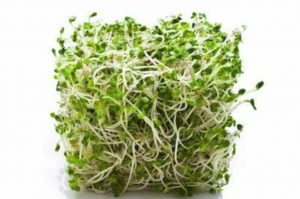Listeria in Wholesome Soy products has killed two people and sickened three others. In the absence of a publicly announced recall, health authorities are warning consumers and retailers about the Chicago-based company’s products.
 Children, seniors, pregnant women and others with compromised immune systems are at special risk for Listeria infections, called listeriosis. Among pregnant women, listeriosis can cause miscarriage, stillbirth, premature delivery and birth defects. Symptoms of listeriosis can take up to 70 days after exposure to develop and include diarrhea, abdominal cramps, fever, headache, stiff neck and muscle aches. Treatment almost always requires hospitalization.
Children, seniors, pregnant women and others with compromised immune systems are at special risk for Listeria infections, called listeriosis. Among pregnant women, listeriosis can cause miscarriage, stillbirth, premature delivery and birth defects. Symptoms of listeriosis can take up to 70 days after exposure to develop and include diarrhea, abdominal cramps, fever, headache, stiff neck and muscle aches. Treatment almost always requires hospitalization.
This outbreak sickened four people in Illinois and one person in Michigan. All of them were hospitalized. Here is a timeline of key events:
From June to August 2014, five people in two states develop listeriosis. Two of them die. During interviews, two of the surviving patients include bean sprouts on the list of foods they ate before become ill.
On August 12, officials from the U.S. Food and Drug Administration (FDA) begin a three-week routine inspection of Wholesome Soy Products Inc. on W. 40th St in Chicago.
On August 13, the FDA finds Listeria in samples of mung bean sprouts and sprout irrigation water.
From August 13 through September 3, the FDA continues its investigation collecting 25 environmental swabs and observing 12 food safety violations for unsanitary conditions and poor equipment maintenance.
On August 28, the FDA notifies Wholesome Soy of confirmed test results that are positive for Listeria. The company agrees to temporarily halt production of mung bean sprouts and perform a voluntary recall of the sprouts by calling its customers.
On September 15, the company resumes production of mung bean sprouts, saying it has cleaned and sanitized the facility and the sprouts have tested negative for Listeria according to an independent consultant the company has hired.
On September 25, a Whole Genome Sequencing analysis of the Listeria isolated from mung bean sprouts, sprout irrigation water and environmental swabs from the facility, reveals that the strains are highly related to the strain isolated from those who became ill.
On October 7, FDA investigators began a follow-up inspection of the Wholesome Soy facility. They collect samples of mung bean sprouts, soy bean sprouts, tofu; spent irrigation water, seeds and more environmental samples.
On October 14, Wholesome Soy ceases tofu and soy drink production, but continues to produce and distribute sprouts.
On October 16, nine of the environmental samples taken October 7 are positive for Listeria.
On November 3, Whole Genome Sequencing analysis of the nine samples are found to be highly related to the Listeria from the samples collected from the facility in August and September, and to samples from the five case patients.
On November 7, the Centers for Disease Control and Prevention (CDC) announces the outbreak.
On November 7, Wholesome Soy verbally agrees to close its facility, cease production and distribution of sprouts, and recall sprouts that are already on the market. But a public recall is not announced.
On November 13, the CDC updates its report on the outbreak, warning consumers and retailers about the product.




